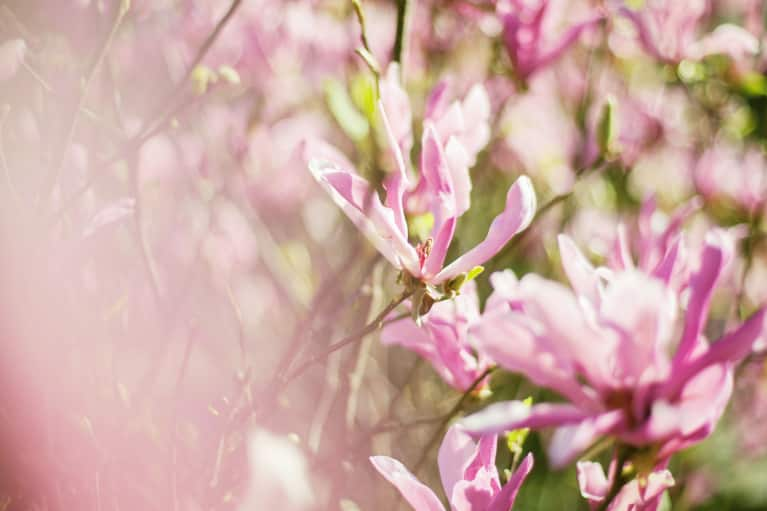
“I am a big fan of magnolia for sleep,” says Michael Breus, Ph.D., a board-certified sleep specialist. “It works as an anxiety reducer, and several of my patients have commented to me that it helps them ‘turn off their brain.'”
Its ability to ‘turn off the brain’ (or at least calm it down) has benefits beyond the bedroom, too. In addition to aiding in restful zzz’s, magnolia bark is also used to help manage stress and anxiety, protect brain health, and treat depression. It’s also been shown to reduce inflammation and inflammation-related pain, help manage diabetes, improve dental health, and even potentially prevent certain cancers.
Here’s what you need to know about magnolia—where it comes from, what it does, how to take it, and more.
What is magnolia?
While supplements are commonly referred to simply as magnolia, they usually contain magnolia bark (magnolia itself refers to a class of about 240 flowering tree and shrub species). The plant is native to North and South America, the Himalayas, and East Asia; and Magnolia has a particularly strong connection to Chinese herbal medicine (which utilizes both the flowers and the bark).
Among other bioactive compounds, the bark contains magnolol and honokiol, which are largely to thank for many of magnolia bark’s benefits.
Magnolia bark for sleep.
Magnolia bark’s most widely known application is helping with sleep—research has found that magnolia bark can help reduce the time it takes to fall asleep and increase the amount of time spent in both REM (rapid eye movement) and non-REM (non-rapid eye movement) sleep, which are both important in restorative rest.
There are several mechanisms behind its sedative effects. Notably, magnolia bark boosts the neurotransmitter GABA, or gamma-Aminobutyric acid. “GABA is like the brakes of the brain,” says Breus. “When GABA is elicited, then your whole being starts to slow down, which obviously is something that you want for sleep.”
This is the same way that powerful prescription sleep aids like Ambien, Lunesta, and Sonata work. “They are all GABA receptor agonists, meaning they increase the amount of GABA in your system, and magnolia bark basically hits the same receptors that Ambien does,” says Breus.
Magnolia bark also helps promote better sleep through the body’s internal endocannabinoid system, which is a system of neurotransmitters that bind to cannabinoid receptors to tell the brain to slow down. Magnolia bark actually activates these cannabinoid receptors, says Breus. This is similar to the way CBD oil works (CBD, or cannabidiol, is one of the non-psychoactive properties found in cannabis that helps the body and brain relax).
Another way magnolia bark aids in sleep is by reducing the stress hormone adrenaline, which helps control the fight-or-flight response (which, hopefully, doesn’t need to be in action when you’re dozing off). “Right as you’re falling asleep, you really want adrenaline to be as low as possible,” says Breus. By reducing adrenaline and other stress hormones like cortisol, magnolia bark can help you doze off peacefully.